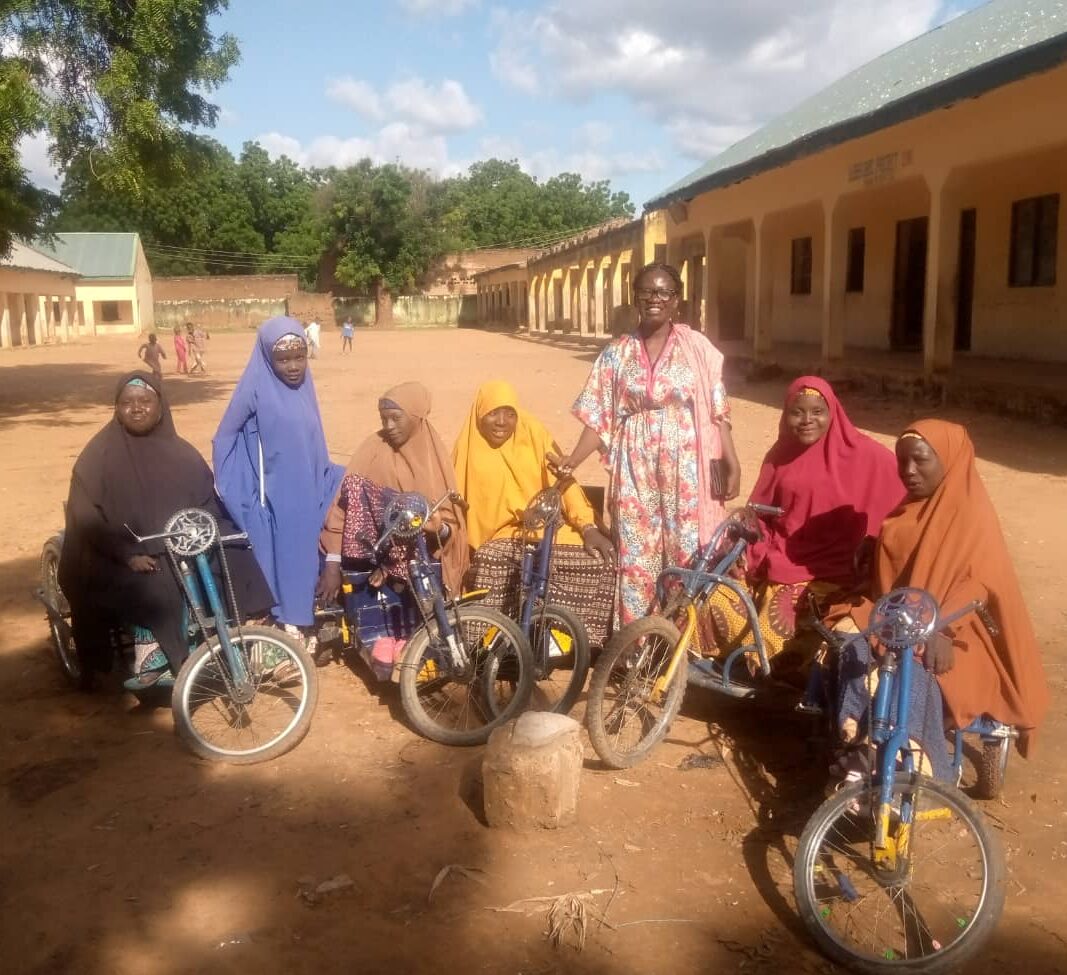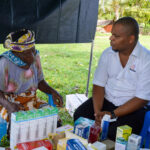Born in Kaduna, northwestern Nigeria, Jefiter Mang spent her childhood and teenage years thronging from the far Southwest in Ogun and down to the core northeast in Yobe, and that has changed her perception about life, where she learned to appreciate the diverse cultures and beliefs found in every corner of the country.
Also, losing her sibling to sickle cell anaemia in 1993 turned out to be the most devastating moment of her life. He was a young boy who dreamed of seeing the world become better.
“His death hit me hard, and I felt inspired to become a change-maker,” Mang told Prime Progress. But even with the inspiration, she didn’t know how to go about it until years later.
It was during the peak of the Boko Haram insurgency in 2012 that Mang and her family fled from Damaturu in Nigeria’s Yobe State, leaving all they had to start a new life from scratch in neighbouring Plateau State.
Following their resettlement, Mang learned about the poor living conditions of two pregnant teenagers in Jos. Then she sought to make life comfortable for them through financial assistance and psychosocial support.
“Being needy made me understand how someone can make a difference by helping others because our relocation to Jos affected my husband. He had to lose his job. So during that time, friends and family also came to help us,” Mang said.
Seeing the prevalent lack in her environment and understanding the power of education to cure that, in 2014, through self-funding, Mang moved on to initiate a Mobile Library and Handwashing Club in public schools within Jos and Abuja.
The Mobile Library works by packaging new and old storybooks in some boxes, arranging them inside a car, and finally transporting them to various schools depending on the time scheduled for the reading activities in each school.
“We put up library signs for the kids to have a feel of the library. After displaying the books, the students make their choices, register, and then read. In the end, we pack up and leave until the next time. For each school, we start with an orientation on ethics of a library, and we often help children struggling to read,” Mang narrated to Prime Progress.
The efforts continued in 2019 until they transformed into what Mang calls purity clubs, where she teaches school girls life skills in the Kwali Area Council of Abuja.
“I then started looking for partnerships with other non-profits like Rotary Club, and we worked on a project aimed at breaking menstrual poverty through teaching girls menstrual health education and at the same time debunking myths on menstruation and ending period poverty,” Mang explained.
While Mang kept sharing the activities on her Facebook page, looking for support to sustain her efforts in addressing the issues affecting young women–some of her friends supported the cause, and in 2023, she registered the Life Aid for Community Development Initiative, a non-profit organisation working to enhance the lives of vulnerable girls and women.
Empowering girls living with disabilities
With self-funding and support from family and friends, Mang initiated a project empowering girls living with disabilities.
“We learned that girls living with disabilities have many more challenges to battle with than those not living with disabilities,” Mang noted.
Initially, the initiative aimed to close the disparity between boys and girls in schools, but while trying to enrol the girls into schools around Potiskum, they found out that most of the girls were out of school due to disabilities.
“We wanted to get them into school, but they weren’t interested, and since many of the girls living with disabilities dropped out of school for a long time, it was difficult to convince them to go back to school, and they were used to making money from begging. So after some engagements with them, they decided that the only way we could help them was to allow them to learn a skill,” Mang recounted.
The project, which was tagged “Finding abilities in disabilities”, started with 20 girls and in seven months, they were trained in sewing clothes (tailoring) by a female tailor who is an expert in the field.
While the students have finished the training, they are now working in other people’s shops before they own their sewing machines, which the initiative has yet to provide.
At 20, Maryam Isa is excited about the opportunity and has stopped begging, which used to be her primary source of income.
“We used to roam the streets around Potiskum begging for money and food. But now, with this training, I have learned how to sew clothes and sometimes go to other shops to work and earn a little profit. I’m hoping to get my sewing machine and tools soon,” Isa shared.
There is also Zainab Muhammed, who walks into a nearby shop in her community every day to repair people’s clothes and even sew new ones to make a profit.
“The training has been a life-changing opportunity for me. I’m grateful about it and hope to sustain it because it gives me pride instead of begging,” Muhammed said.
Limitations
The project encountered challenges as it lacked a dedicated skill acquisition centre. Consequently, the team had to allocate funds for one, restricting the number of girls who could enrol in the empowerment program.
“The girls were located far from the training venue. So it was difficult for some of them to come to the place, and only 12 girls continued due to the barrier of distance from the initial 20 girls we started with,” Mang admitted.
Additionally, some of the girls retained the mindset of begging for alms even during the training, posing a challenge in deterring them as it was a source of income.
Despite these obstacles, Mang now firmly believes in the potential within every person. Her vision is to empower more girls with disabilities, enabling them to realise their capabilities and lead improved lives.
“We are planning to provide all the beneficiaries with sewing machines and also get our skill acquisition centre that is built to accommodate hundreds of girls with disabilities who can come and learn skills in bakery, tailoring, and others,” she concluded.






